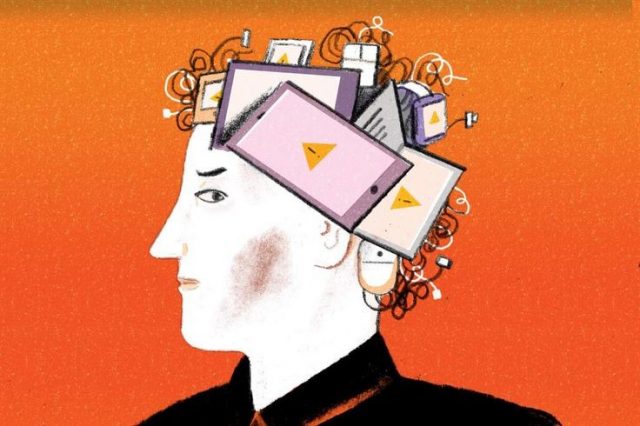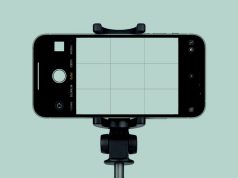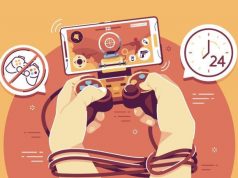Recapture the moment as to when you were indulged in your studies or project work with your smartphone beside you? How often was it that you checked on your device expecting a new notification, message, match score, etc? Was it that simple to concentrate and work efficiently, or was your device haunting you every now and then? How relieved did you feel then on picking up your phone and scrolling through the messages?
The vast effects of digital media can be observed in our daily lives. While there may be various applications of digital media, it is also termed to be a major factor for a person’s low focus stint and memory power.
Besides, these devices have a reinforcing nature. Using it activates the brain’s reward centre by releasing dopamine, a “feel-good chemical” linked to pleasurable activities such as food, and social interaction. The platforms are designed to be addictive and are associated with anxiety, depression, and even physical ailments.
In the era of modern technology, it seems next to impossible to abstain completely from digital devices. From smartphones to laptops, tablets, and smartwatches, these devices have revolutionised the way we work, communicate, and access information. However, with the increasing dependence on technology, a new phenomenon has emerged: digital distraction.
The Progression of Digital Distraction
Digital distraction refers to the interference caused by digital devices in our lives leading to a decrease in one’s productivity and causing negative impacts in our daily lifestyle.
The rise of digital distraction can be attributed to several factors including:
● Social Connectivity: The constant connectivity offered by smartphones and the internet has made it challenging to detach ourselves from the digital world. The desire to stay connected with friends and family through social media and messaging apps can lead to frequent interruptions and distractions.
● Instant Gratification: Digital platforms are designed to provide instant gratification. Notifications, likes, comments, and other forms of feedback on social media can be addictive, making users constantly check their devices.
● FOMO: The fear of missing out is a powerful driver, compelling us to frequently check our devices to stay updated on the latest news, trends, and social interactions. The anxiety that others might be having rewarding experiences from which one is absent can compel individuals to stay connected and check their devices frequently.
● Algorithm Design: the design of digital technologies is intentionally engaging. App developers and tech companies employ techniques like notifications, gamification, and algorithms to keep us scrolling and spending more time on their platforms.
● Entertainment and Escapism: Digital devices provide easy access to games, videos, and other forms of entertainment, which can be tempting distractions from more important but less enjoyable tasks.
Akrasia – An Age-Old Problem?
This notion of distraction is not something that the iPhone or Instagram invented in our lives. In fact, Socrates, Plato and Aristotle asked the same question 2,500 years ago. They called it akrasia, which is the tendency to do things against our better interests. This proves that the idea of distraction is not new to this world and has victimised previous generations too.
Impacts
“People who are uncomfortable with their own and others’ emotions may be more comfortable online,” said Sara Konrath, PhD, of Indiana University. “We think that they may prefer text-based interactions that allow them more time to process social and emotional information.”
In this way, Mobile phones may act as an escape route for introverts and insecure personalities.
A 2018 British study tied social media use to decreased, disrupted, and delayed sleep, which is associated with depression, memory loss, and poor academic performance. Social media use can affect users’ physical health even more directly.
To boost self-esteem and feel a sense of belonging in their social circles, people post content with the hope of receiving positive feedback.
When reviewing others’ social activity, people tend to make comparisons such as, “Did I get as many likes as someone else?,” or “Why didn’t this person like my post, but this other person did?” They’re searching for validation on the internet that serves as a replacement for meaningful connections they might otherwise make in real life.
Missing experiences can create anxiety and depression. When people look online and see they’re excluded from an activity, it can affect thoughts and feelings, and can affect them physically.
Researchers know the connection between the mind and the gut can turn anxiety and depression into nausea, headaches, muscle tension, and tremors. The earlier teens start using social media, the greater impact the platforms have on mental health.
In addition to providing young people with a window through which they can view missed experiences, social media puts a distorted lens on appearances and reality.
Facebook, Instagram, and Snapchat increase the likelihood of seeing unrealistic, filtered photos at a time when teen bodies are changing. In the past, teens read magazines that contained altered photos of models. Now, these images are one thumb-scroll away at any given time. Apps that provide the user with airbrushing, teeth whitening, and more filters are easy to find and easier to use. It’s not only celebrities who look perfect—it’s everyone. This feature has also led to lack of self-esteem and inferiority complex.
Various impacts of digital distraction include- Mental Health Impacts:
● Social Anxiety and Inferiority: Constant notifications and the pressure to respond immediately can lead to increased stress and anxiety. The SM platforms can foster feelings of inadequacy and social comparison. The fear of missing out on social events or achievements highlighted on social media can exacerbate these negative emotions.
● Hinders Productivity: Constantly checking emails or responding to instant messages during meetings can disrupt the flow of communication and hinder problem-solving. Digital distractions can also lead to procrastination, where individuals delay important tasks in favour of engaging with digital content. This can result in decreased productivity and a sense of inadequacy or failure.
● Cognitive Overload: The constant influx of information and the need to switch between tasks can overwhelm the brain, leading to cognitive overload. This can impair decision-making, problem-solving abilities, and overall cognitive function.
● Strain Relationships: Digital distraction has the potential to strain relationships, both personal and professional. When we prioritise our devices over face-to-face interactions, others can feel neglected and ignored. Quality time with loved ones may be sacrificed in favour of scrolling through social media or responding to work emails.
● Reduced Attention Span: Frequent interruptions and the habit of multitasking can reduce the ability to focus on tasks for extended periods.This can lead to difficulties in completing tasks, which in turn can cause frustration and stress.
● Depression: Overuse of digital devices and social media has been linked to increased rates of depression, especially among young people. The constant comparison with others, exposure to negative content, and lack of real-world social interactions can contribute to depressive symptoms.
● Isolation and Loneliness: Despite being constantly connected, individuals may experience a lack of genuine social interaction. Digital communication can lack the depth and emotional connection of face-to-face interactions, leading to feelings of isolation and loneliness.
Physical Health Impacts:
● Sleep Deprivation: Digital distraction can also disrupt our sleep patterns, leading to sleep deprivation and its associated mental and emotional health issues. The blue light emitted by screens interferes with the production of melatonin, a hormone crucial for sleep regulation. Prolonged exposure to screens before bedtime can make it difficult to fall asleep and result in poor sleep quality. Lack of sleep may lead to weak immune system, weight gain, chronic conditions, etc
● Sedentary behaviour: One of the most noticeable consequences of digital distraction is sedentary behaviour. Excessive screen time often leads to a more sedentary lifestyle, as we spend hours sitting in front of computers, binge-watching TV shows, or scrolling through our phones. Prolonged periods of inactivity are associated with various health issues, including obesity, cardiovascular diseases, and musculoskeletal problems.
● Health Issues: The improper use of digital devices, such as hunching over a smartphone or laptop, can lead to poor posture and related ailments. “Text neck,” sometimes called “tech neck,” is a real thing, and a term used to describe the neck pain and damage to the spine caused by constantly looking down at screens. Similarly, “computer vision syndrome” encompasses a range of eye problems arising from staring at screens for extended periods, including eyestrain, dry eyes, and headaches.
Let’s Traction!
The opposite of traction is distraction.
Both the words come from the same Latin root trahere which means to pull. Traction by definition is any action that pulls you towards what you say you’re going to do, things that pull you towards your values, help you become the kind of person you want to become—that’s traction.
Distraction is any action that pulls you away from what you intended to do, away from your values, away from becoming the kind of person you want to become.
This simple definition is extremely important to draw the line and analyse properly. Firstly, it frees us from this silly moral hierarchy that lets people judge each other for how they spend their time. If you want to play Candy Crush or browse social media, there is nothing morally inferior to doing that versus watching football on TV. It’s a pastime and there’s nothing wrong with it as long as you do it with intent and it’s consistent with your values.
Secondly, it makes us be honest with ourselves about what is traction. Many of us sit down at our desk at work and we say, “Okay, we’re going to do that big project that we’ve been delaying. We’re going to start working on it… right after we check email, right after we check our Slack channel.” And that’s just as much of a distraction as playing video games because it fools us. Distraction tricks us, it makes us think that what we’re doing is productive — but it’s not. It’s just as much of a distraction because it’s not what we intended to do.
The Remedy
Fortunately, there are several strategies we can employ to regain control over our digital lives:
● Digital Detox: Periodically disconnect from digital devices to recharge and refocus. This could involve taking short breaks during the day or scheduling digital-free weekends.
● Mindful Consumption: Practise mindful use of technology by setting specific times for checking emails and social media. Limit the use of devices before bedtime to improve sleep quality.
● Notifications Management: Turn off non-essential notifications on your devices to reduce the frequency of interruptions. Designate specific times to check messages and updates.
● Create Technology-Free Zones: Designate certain areas of your home or workspace as technology-free zones to promote better focus and quality time with loved ones. Making our bedrooms tech-free is a great way to guarantee several hours of rest and recovery free from distractions.
● Prioritise Face-to-Face Interactions: Try to spend quality time with friends and family without the distraction of screens. Engage in meaningful conversations and activities, like taking a walk, enjoying a cup of coffee, or exploring nature.
● Digital Well-Being Tools: Utilize digital well-being features available on smartphones and apps that track and limit screen time. These tools can provide insights into your digital habits and help you set usage goals.
References:
https://www.apa.org/news/press/releases/2018/08/digital-distraction
https://www.inc.com/nate-klemp/harvard-psychologists-reveal-real-reason-were-all -so-distracted.html





